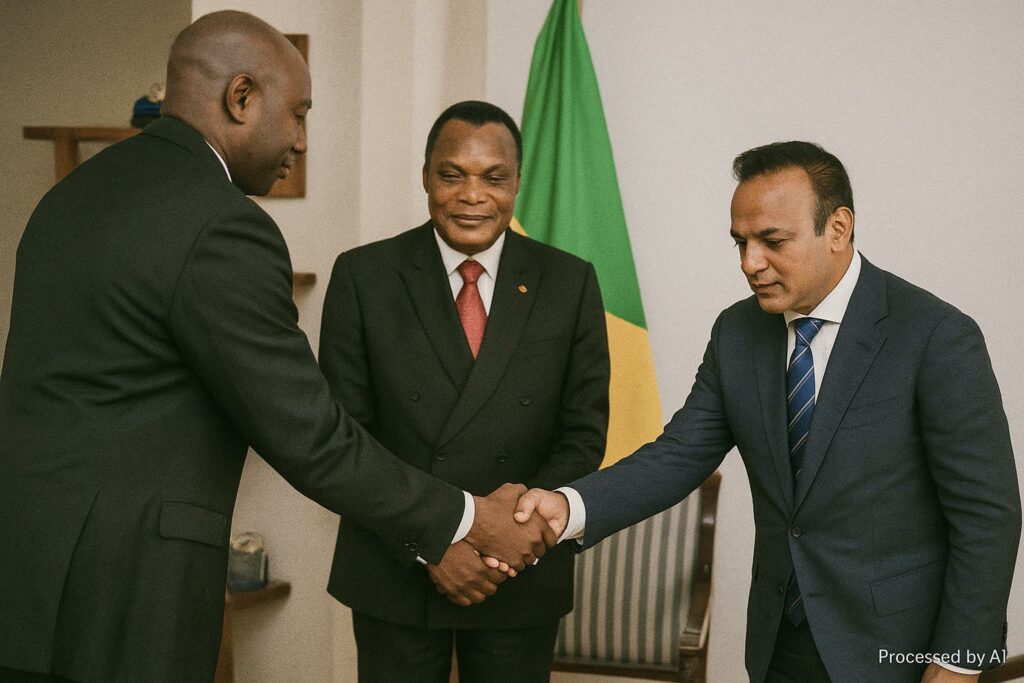A Southern African Overture Sets the Tone
By the time Foreign Minister Jean-Claude Gakosso’s aircraft touched down in Port-Louis on 25 July, Brazzaville’s southern African swing had visited Luanda, Windhoek, Gaborone and Maputo before closing in Mauritius. Each stop combined protocol courtesy with sharp electoral arithmetic: twenty-six African votes sit on UNESCO’s Executive Board, and a first movement in the south was deemed pivotal to shaping a pan-African consensus. According to communiqués from the Angolan presidency and the Mauritian State House, heads of state received sealed letters from President Denis Sassou Nguesso urging colleagues to elevate African agency within multilateral institutions by rallying around a single continental candidate. The gesture found resonance with leaders increasingly vocal about recalibrating Africa’s weight in global governance (Angolan Presidency release, 22 July 2023).
Synchronising Government Voices in Brazzaville
The choreography of the campaign is notable for its internal coordination. An inter-ministerial taskforce chaired by Prime Minister Anatole Collinet Makosso meets weekly, according to officials at the Ministry of Foreign Affairs, to align talking points from the diplomatic corps with those of Culture, Education and Finance. The aim is to present Matoko not merely as a Congolese nominee but as an African technocrat with a track record in UNESCO’s own corridors. A senior adviser involved in the briefings insists that such whole-of-government harmony responds to lessons drawn from past African bids that failed to aggregate support beyond linguistic or sub-regional blocs (Congolese MFA communication, 15 July 2023).
Firmin Édouard Matoko: Curriculum Vitae as Campaign Manifesto
Matoko’s résumé, spanning deputy-director portfolios at UNESCO in charge of priority Africa and external relations, constitutes the spine of the pitch. On the campaign trail, Gakosso foregrounds Matoko’s stewardship of the Operational Strategy for Priority Africa 2022-2029, a document praised by the African Union for aligning continental development frameworks with UNESCO’s mandate. Observers in Paris note that the candidate’s familiarity with the Secretariat’s budgetary mechanics reassures member states eager for prudence and predictability, qualities often decisive in close-run multilateral elections (UNESCO observer interview, 10 July 2023).
Balancing Francophonie and Lusophonie Sensibilities
Congo-Brazzaville traditionally anchors itself in the Francophone sphere, yet the itinerary’s inclusion of Angola and Mozambique underscores a deliberate outreach to Lusophone partners. Analysts at the African Centre for Multilateral Diplomacy argue that forging linguistic cross-bridges is essential after the 2017 UNESCO race, where split African votes diluted continental influence. Gakosso’s public statements in Luanda, delivered partly in Portuguese, invoked cultural affinity and Congo’s historical role in the Frontline States during the liberation struggles, subtly framing the bid within a narrative of shared liberation heritage rather than linguistic rivalry.
Next Act: West and Horn of Africa Engagements
With the Southern African overture concluded, the baton passes to Prime Minister Makosso, who is scheduled to shuttle between Libreville, Abidjan, Abuja, Ouagadougou, Monrovia and Djibouti starting 27 July. Diplomatic notes seen by The Diplomatic Review indicate that each capital will receive a tailored policy brief mapping UNESCO’s priorities onto national development agendas, from Côte d’Ivoire’s bilingual education reforms to Nigeria’s creative industries strategy. The choice of heavy-weight economic hubs suggests Brazzaville’s intention to pair moral arguments about African representation with concrete deliverables in the organisation’s programme clusters.
Quiet Support from Paris and Beijing?
Although the campaign publicly highlights African solidarity, senior officials acknowledge the importance of extra-regional endorsements. During the recent Summit for a New Global Financing Pact in Paris, President Sassou Nguesso held a sideline discussion with French President Emmanuel Macron, where, according to a Congolese delegation source, educational cooperation featured prominently. Meanwhile, Chinese diplomats in Addis Ababa have signalled appreciation for Matoko’s role in promoting STEM education in Africa, a priority shared by Beijing’s South-South agenda (African Union Commission official, 1 July 2023). Neither capital has formally declared, yet discreet encouragement can influence swing members in the Asia-Pacific and Latin American groups.
Assessing the Road Ahead
The UNESCO electoral calendar affords Brazzaville several months to convert goodwill into firm commitments before the Executive Board vote in 2025. The Congolese strategy mixes classical diplomacy with a soft-power narrative that positions Matoko as an insider-reformer capable of championing Africa while safeguarding UNESCO’s institutional continuity. Success will hinge on maintaining cohesion across Africa’s five sub-regions, avoiding multiple candidacies and managing perceptions in rival voting blocs. For now, the Southern African crescendo has amplified Congo’s voice on the continental stage, offering a preview of how smaller states can leverage disciplined diplomacy to punch above their demographic weight.
Brazzaville’s Calculated Optimism
In conversation, a veteran Central African diplomat summed up the mood in Brazzaville: “We know multilateral elections test endurance more than speed, but Congo has set an early pace.” That measured confidence rests on a campaign carefully attuned to regional sensibilities and anchored by presidential engagement. While the corridors of UNESCO will ultimately arbitrate Matoko’s fate, the first leg of Congo’s diplomatic waltz has demonstrated that strategic coordination, cultural empathy and timely outreach can render even the most competitive multilateral contests a stage for constructive African agency.

